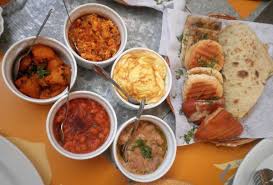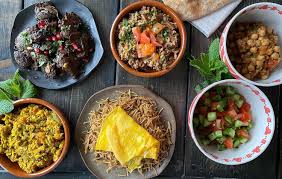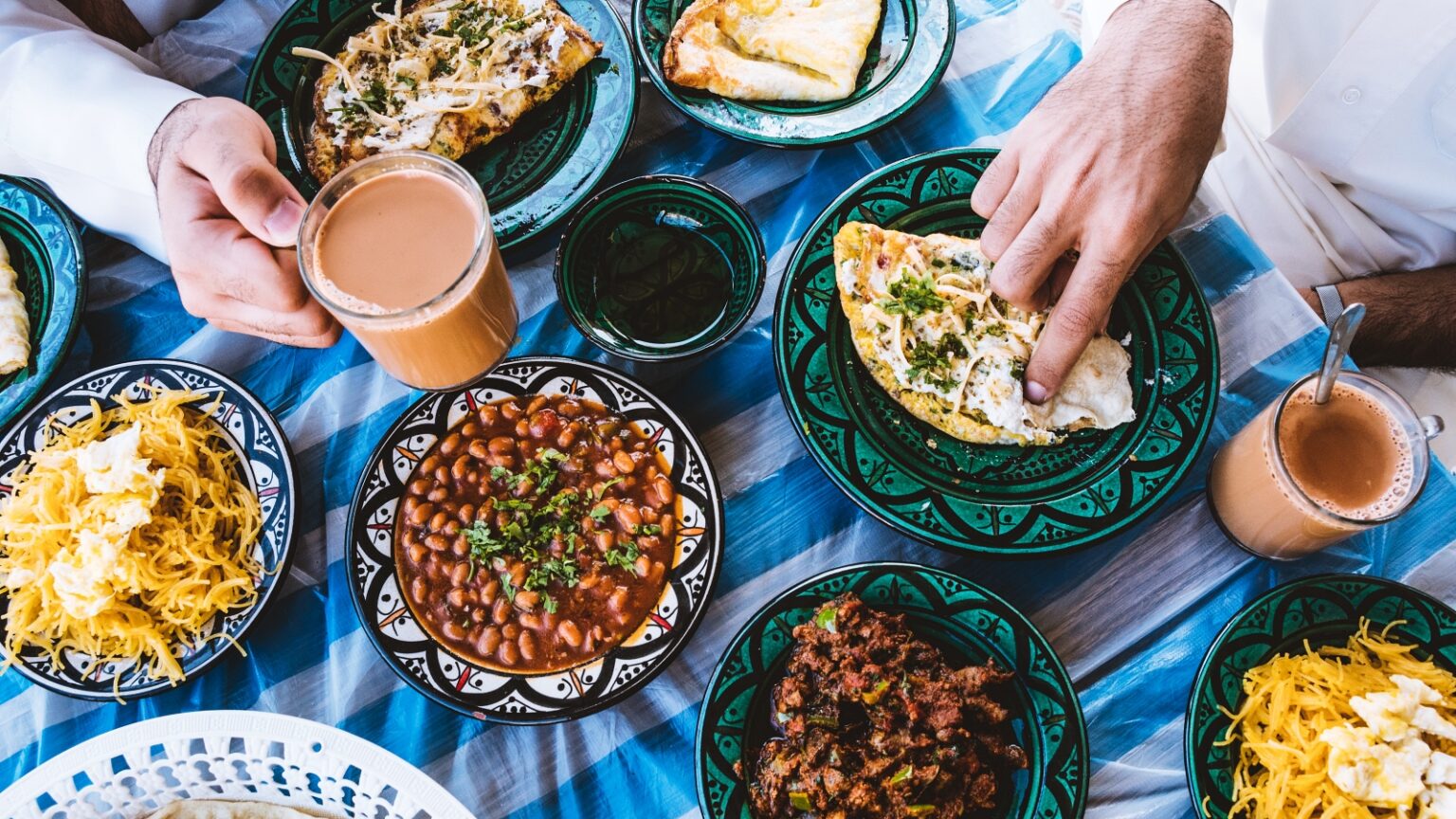The Warmth of a Bahraini Morning
Breakfast in Bahrain is more than just the first meal of the day. It is an experience that ties families together, creates a sense of belonging, and carries forward traditions that have been cherished for generations. In Bahraini culture, mornings begin with the aromas of freshly prepared dishes filling the household. From rich breads to hearty stews, the breakfast table is both a reflection of the island’s history and its people’s warmth. Unlike quick modern meals, traditional Bahraini breakfasts are meant to be shared, savored, and remembered.
Cultural Roots Behind Traditional Breakfasts
The roots of Bahraini breakfast foods are deeply tied to the island’s heritage, influenced by its geographical position in the Arabian Gulf. Bahrain has long been a hub for trade, connecting East and West, and this blend of cultures is evident in its cuisine. The spices of India, the breads of the Levant, and the flavors of Arabia all find their place on a Bahraini table. These foods are not only about sustenance; they carry stories of ancestors, trade routes, and the simplicity of life before the rush of modernity. Each dish reflects resilience, adaptation, and a deep love for food that strengthens bonds among families and communities.
Balaleet: Sweet and Savory Harmony
One of the most iconic dishes in a traditional Bahraini breakfast is balaleet. At first glance, it looks unusual a mix of sweet vermicelli noodles topped with a savory omelet. Yet this contrast is what makes it unique. The sweetness of cardamom-flavored noodles blends beautifully with the richness of eggs, creating a dish that surprises and delights anyone who tries it. For many Bahrainis, balaleet brings childhood memories of weekends, gatherings, and festive mornings. It is also a dish often enjoyed during Eid celebrations, where families come together in joy and gratitude.

Khubz: The Heart of the Table
No Bahraini breakfast would be complete without bread, locally known as khubz. This warm, soft flatbread is a staple, often baked fresh in tandoor-style ovens. It is served alongside almost every dish, acting as both plate and utensil. The bread embodies simplicity yet carries profound significance. It reminds people of togetherness, as tearing and sharing bread has always symbolized unity in Bahraini households. Whether dipped into stews, wrapped around cheese, or spread with date syrup, khubz is a humble yet powerful part of the morning ritual.
Harees: A Dish of Patience and Love
Harees, a porridge-like dish made from wheat and meat, holds a special place in Bahraini culture. It is slow-cooked for hours until it achieves a creamy consistency that warms the heart. Traditionally, harees is prepared during the holy month of Ramadan and other special occasions, but it also finds its place on breakfast tables when families want something nourishing and filling. The time and effort required to prepare harees symbolize patience and devotion, qualities deeply respected in Bahraini society. It is more than food; it is a lesson in endurance and love passed down through generations.
Mahyawa: A Bold Taste of the Sea
Bahrain’s identity is closely tied to the sea, and this is reflected in mahyawa, a unique fermented fish sauce spread on bread. Its sharp, salty flavor is not for everyone, but for those who grew up with it, mahyawa is an irreplaceable part of breakfast. It represents Bahrain’s maritime heritage and the resourcefulness of its people, who preserved fish in ways that ensured sustenance throughout the year. Today, mahyawa is often enjoyed on crispy bread with fresh vegetables, offering a bite that instantly transports one to Bahrain’s coastal roots.
Eggs and Tomatoes: Simple Yet Comforting
Among the many elaborate dishes, one of the most comforting Bahraini breakfasts is the simple mix of scrambled eggs with tomatoes, often spiced with turmeric and cumin. Known as shakshouka in some regions, this dish reflects the Bahraini ability to turn basic ingredients into something soulful and satisfying. It is quick to prepare yet deeply comforting, reminding many of their mothers and grandmothers who could create magic with just a handful of ingredients. It speaks to the idea that food does not always need to be complex to carry meaning.
The Role of Dates and Honey
Dates are inseparable from Bahraini life. On breakfast tables, they often appear alongside honey, cheese, and bread. Dates are not only a natural source of energy but also hold spiritual significance in Islamic culture. Paired with locally harvested honey, they create a combination that is both nutritious and symbolic of nature’s generosity. Offering dates to guests is a traditional gesture of hospitality, and sharing them at breakfast connects the present generation to timeless customs of generosity and kindness.
Cheese and Dairy Delights
Cheese, laban (buttermilk), and yogurt often accompany Bahraini breakfasts, adding freshness and balance to the richer dishes. Soft white cheeses are spread over bread or eaten with herbs and vegetables, creating lighter options to balance the meal. Dairy foods highlight the diversity of the Bahraini table, where heavy dishes like harees are complemented by refreshing sides, ensuring that everyone finds something they love at breakfast.
Tea and Karak: The Perfect Companions
No Bahraini breakfast is complete without tea, often served in two distinct ways. Traditional Arabic tea is light, fragrant, and infused with mint or spices. On the other hand, karak tea, influenced by South Asian traditions, is strong, milky, and sweet. Karak has become a favorite across the Gulf, and in Bahrain, it is part of daily life. Families and friends often gather over cups of steaming karak, sharing stories, laughter, and connections. The ritual of tea drinking transforms a meal into a celebration of togetherness.
Breakfast as a Social Experience
Unlike the fast-paced breakfasts common in many parts of the world, traditional Bahraini breakfast is a social affair. It is about sitting together, passing dishes around, and enjoying conversations before the day begins. Families bond during these moments, and children learn not only the value of food but also the importance of respect, sharing, and gratitude. It is common for neighbors and extended family members to join, turning breakfast into a community event. This sense of togetherness reflects the core values of Bahraini society, where relationships are nurtured over food.
The Significance of Tradition in Modern Times
In modern Bahrain, lifestyles have changed, and many young people lead fast-paced lives with little time for elaborate breakfasts. Yet, the traditions remain alive. On weekends and special occasions, families return to these meals, cooking together and reliving the flavors of their heritage. Restaurants across Bahrain also serve traditional breakfasts, keeping the culture accessible even in urban settings. This balance between modern convenience and cultural preservation highlights how food adapts while still holding on to its roots.
Traditional Foods and National Identity
Food is often seen as a reflection of national identity, and in Bahrain, breakfast plays a significant role in expressing pride and unity. The traditional dishes are not just personal favorites but shared markers of culture. They tell the story of Bahrain’s past, from pearl divers and fishermen to traders and farmers. By continuing to prepare and enjoy these foods, Bahrainis celebrate their heritage while passing it on to future generations. Every bite of balaleet or harees is a reminder of where they come from and the values they hold dear.
Symbolism of Bahraini Breakfast Rituals
Every element of a Bahraini breakfast carries symbolic weight. Bread represents unity, dates embody generosity, harees reflects patience, and tea highlights hospitality. These foods are more than flavors; they are daily lessons in values. They teach children respect for tradition, appreciation for effort, and the joy of sharing. They also remind adults of their roots, offering comfort and grounding in a world that is constantly evolving. Through these rituals, Bahraini society reinforces its cultural identity in the most delicious way possible.

The Role of Women in Preserving Traditions
Women have played a central role in preserving Bahraini breakfast traditions. From mothers teaching daughters recipes to grandmothers preparing meals for extended families, women have been the guardians of culinary heritage. Their knowledge, passed down through generations, ensures that the flavors of Bahrain remain authentic and alive. Breakfast preparation is not just cooking; it is storytelling, teaching, and nurturing all at once. Women’s role in this cultural preservation highlights their importance in shaping both family and national identity.
Breakfast in Festivals and Celebrations
During festivals like Eid, breakfast takes on an even greater significance. Families prepare large spreads that include traditional dishes along with sweets and delicacies. These meals are shared not only with relatives but also with neighbors and guests, reinforcing the value of community and generosity. Special dishes such as balaleet are often reserved for these occasions, turning breakfast into a moment of joy, celebration, and gratitude. These festive mornings remain some of the most cherished memories in Bahraini households.
The Modern Revival of Traditional Foods
In recent years, there has been a growing movement among young Bahrainis to revive traditional foods and integrate them into modern lifestyles. Food bloggers, restaurants, and chefs are reintroducing traditional breakfasts with contemporary twists, making them appealing to younger generations. This revival is not just about flavor; it is about reconnecting with roots in a rapidly globalizing world. Through these efforts, traditional Bahraini breakfasts continue to thrive, bridging the gap between heritage and modernity.
Significance for Visitors and Tourism
For visitors to Bahrain, experiencing a traditional breakfast is often one of the highlights of their trip. It provides an authentic taste of Bahraini hospitality and offers a window into the country’s culture and values. Tourists who sit at a Bahraini breakfast table are not just eating; they are participating in a centuries-old tradition that reflects the island’s identity. This cultural exchange strengthens Bahrain’s image as a nation that values heritage, community, and warmth.
The Enduring Legacy of Bahraini Breakfasts
As Bahrain continues to grow and modernize, its breakfast traditions remain a steadfast reminder of cultural values. These foods carry legacies of love, patience, and hospitality. They tell stories of trade, migration, and resilience, connecting Bahrainis to their ancestors while grounding them in their identity. The enduring popularity of these dishes ensures that no matter how fast life becomes, there will always be a moment to sit, share, and savor the essence of Bahraini culture.
Conclusion: More Than a Meal
Traditional Bahraini breakfasts are far more than a collection of dishes. They are a reflection of heritage, identity, and values. They symbolize family, hospitality, and resilience while offering flavors that are comforting, bold, and unforgettable. Whether it is the sweetness of balaleet, the warmth of harees, or the sharpness of mahyawa, each dish carries meaning beyond taste. For Bahrainis, breakfast is not just the start of the day but the continuation of a story that has been told for generations and will continue for many more. It is a cultural treasure that nourishes both body and soul, reminding everyone that the best mornings begin with tradition, love, and togetherness.
Do follow Gulf Magazine on Instagram.
Also Read – Spices Shaping the Soul of Bahraini Authentic Cuisine



